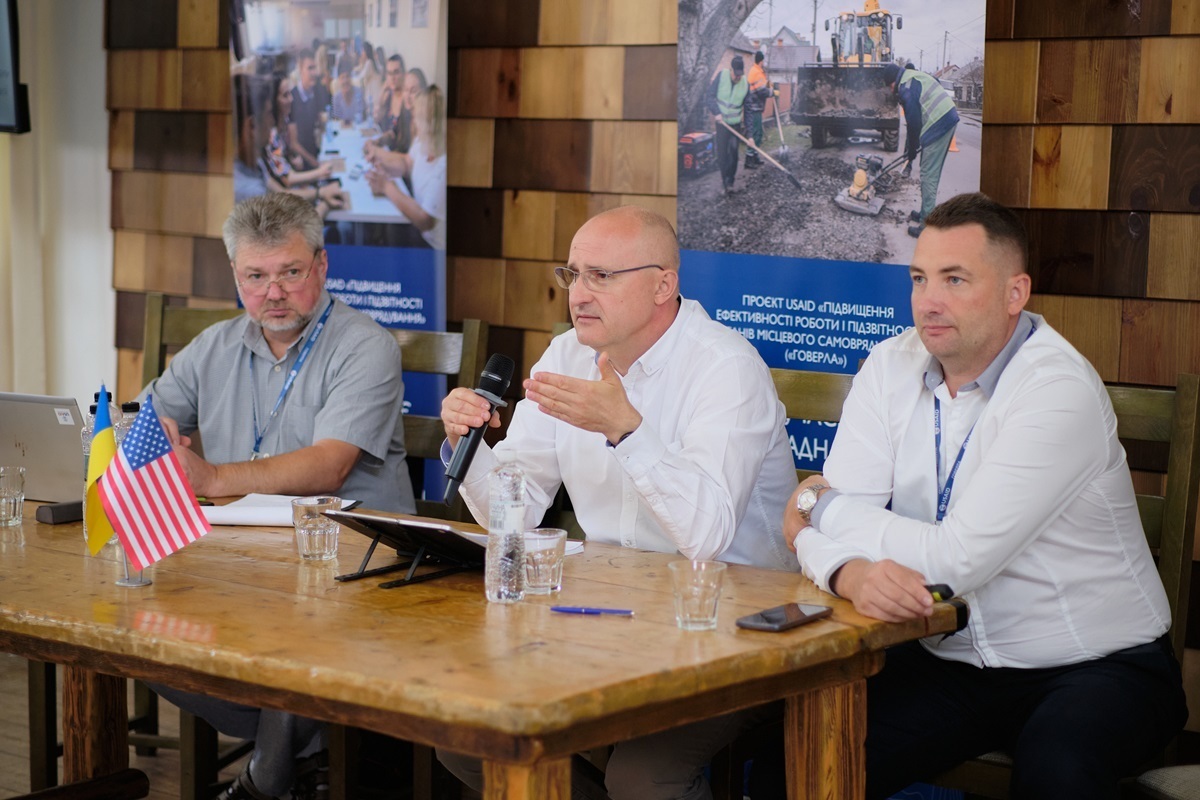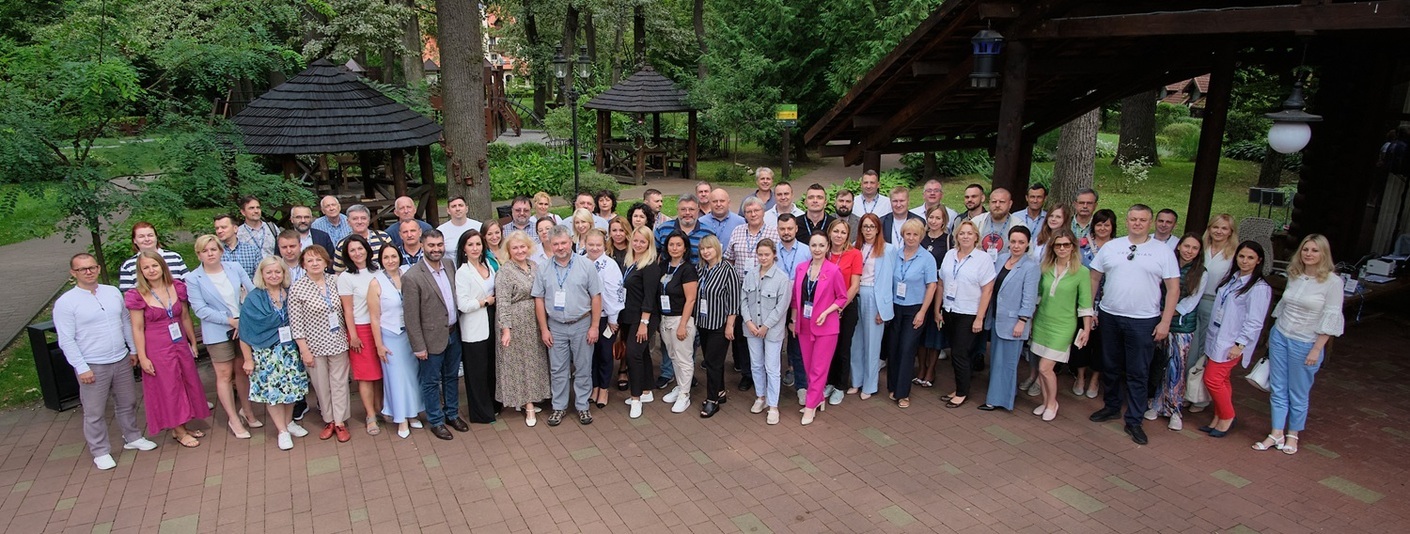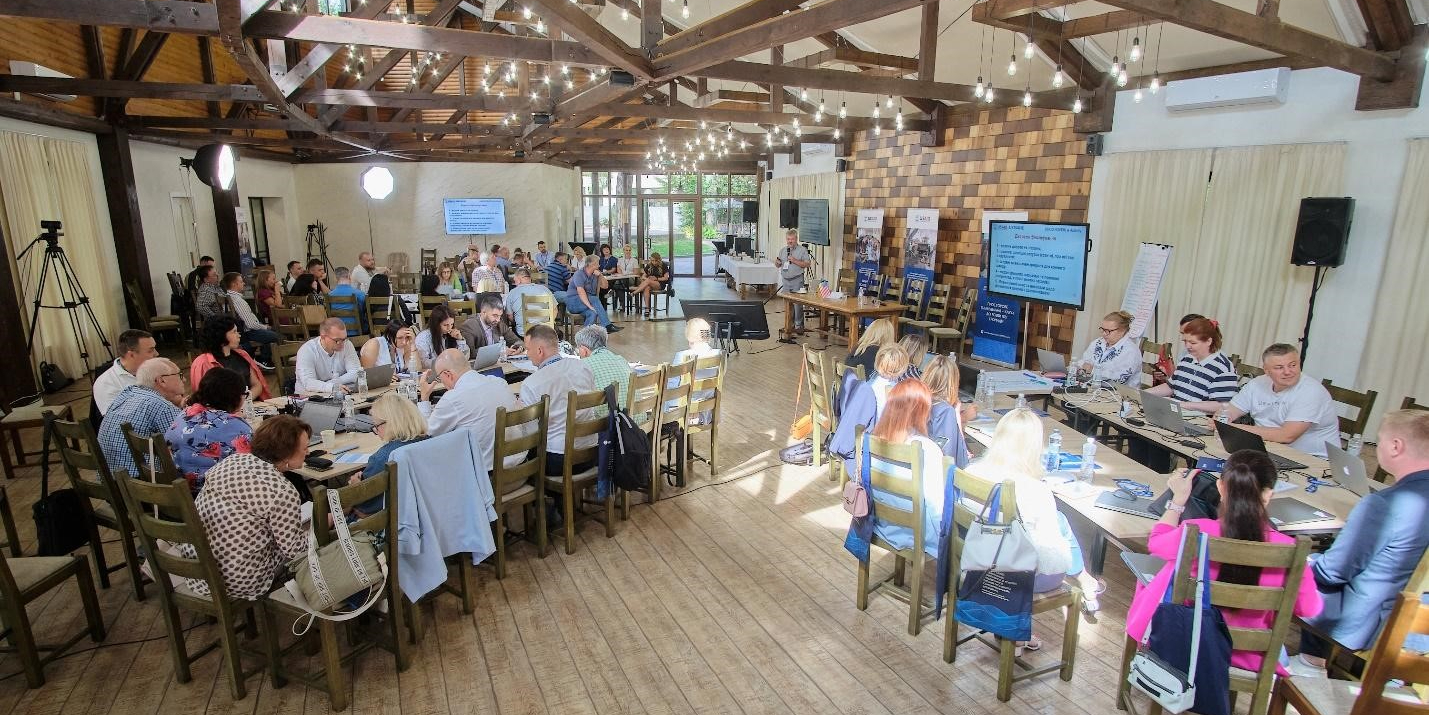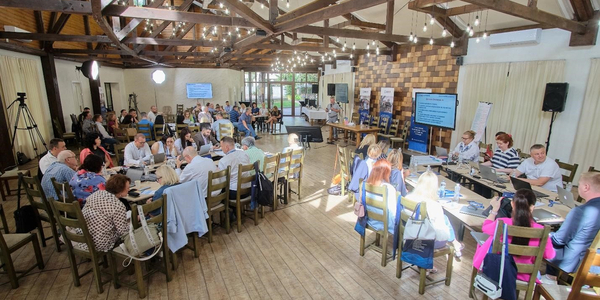Experts Discuss Harmonization of Key Community Documents
On August 21-23, the harmonization of planning systems, including the development of strategic documents of territorial communities, was discussed in Lviv. The event, supported by the USAID HOVERLA Activity, brought together over 80 leading strategic planning experts, representatives from the Cabinet of Ministers, the Ministry of Restoration, and associations.
The meeting was timely, following the government’s approval of the updated State Regional Development Strategy. The USAID HOVERLA Activity is set to begin work on development strategies for an additional 60 communities, engaging top organizations in the field, such as the Yavoriv Local Economic Development Agency, Volyn Resource Center, NGO Endshpil, and the Siversk Institute for Regional Studies. To date, the project has already assisted in creating strategies and implementation plans for 57 partner and friendly communities, which were the first in Ukraine to develop these strategic documents according to the state’s updated clear methodological requirements.
During the event, participants sought a common understanding of how key planning documents for communities should interact, as these documents are currently being developed in parallel, often with overlapping tasks that do not align with financial capabilities. To address this challenge, the USAID HOVERLA Activity experts presented a model for harmonizing planning documents. This model includes integrating a comprehensive spatial development plan, which serves as the foundation for all planning documents, with a development strategy, and aligning local target and budget programs with these documents. They also emphasized the need to incorporate energy efficiency programs, investment components, engage the public and businesses, and enhance communication with neighboring communities and the regional level in strategic planning.

The participants also discussed quality criteria for strategic planning work proposed by the USAID HOVERLA Activity, which are broader than the current methodology. For example, according to the project's requirements, the development strategy should include a detailed implementation plan, ready-made project cards with clear expected results, responsible persons, calculated budgets, and funding sources.
"This is a unique meeting format that brought together a wide range of diverse experts: specialists in strategic and spatial planning, financiers, and lawyers. Usually, we discuss these issues in parallel within different groups," shared Iryna Storonіanska, a strategic planning expert.
Based on the expressed ideas and proposals, experts developed a joint action plan and recommendations that will soon be implemented in communities. In the future, experts will also provide proposals for updating regulations and improving legislation, particularly to ensure that communities are informed in advance about the sectoral strategies of the ministry. For example, when large infrastructure projects like highways or Euro-gauge railways are developed, the communities through which these projects will directly pass often do not know about them and do not account for these plans in their development strategies. Changes in legislation will ensure mutual information exchange.
Oleh Voytovych, Deputy State Secretary of the Cabinet of Ministers of Ukraine, who also participated in the panel discussion, emphasized the importance of this event:
"We have many obligations to our international partners regarding the organization of state policy formation documents, policy implementation, and strategic planning. If we want to be a full-fledged part of the civilized world, we must live and work by the rules of that world. In this process, it is crucial to hear the opinions of experts representing communities and implementing government laws and decisions locally. Therefore, this event is essential to making the right and balanced decisions."

The USAID HOVERLA Activity supports the Ministry of Restoration’s efforts in the effective strategic developent of communities, building their resilience, capacity, and self-sufficiency.


23 December 2025
Швейцарська підтримка сприятиме реалізації...
5 агенцій регіонального розвитку отримають гранти на реалізацію стратегічних пріоритетів у рамках програми...
23 December 2025
Open Call: Partnership in Preserving and Improving Access to Public Services
Open Call: Partnership in Preserving and...
The Swedish–Ukrainian Polaris Programme: Supporting Multilevel Governance in Ukraine announces a call to support...
22 December 2025
Статут демократії: Криничанська громада серед перших в Україні прийняла новий ключовий документ
Статут демократії: Криничанська громада серед...
Незважаючи на складну безпекову ситуацію, громади Дніпропетровської області не припиняють роботу над побудовою...
22 December 2025
В Броварах відкрився сучасний профорієнтаційний хаб DECIDE для учнів 7–9 класів
В Броварах відкрився сучасний профорієнтаційний...
У Броварському професійному коледжі запрацював новий, вже дев’ятий за рахунком, профорієнтаційний хаб, створений в...
